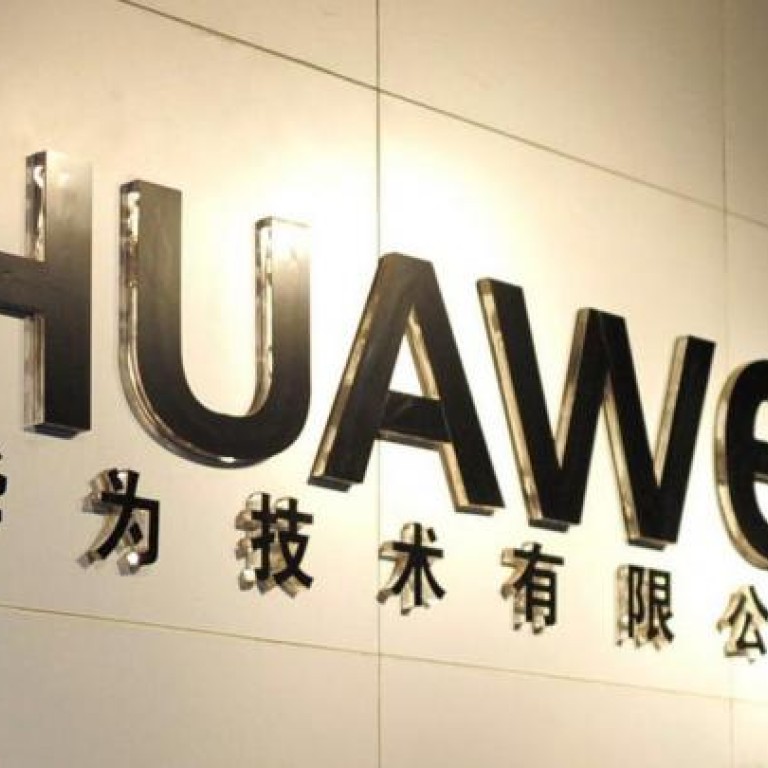
Huawei wins telecoms patent case against ZTE
A court ruling in Germany has given the telecoms equipment firm an important win in its fight with rival over LTE mobile technology
The patents dispute between the mainland's two largest telecommunications equipment makers has heated up after Huawei Technologies won an injunction from a court in Germany against ZTE, which is now barred from selling its 4G-ready base stations in that market.

ZTE said it was "confident the product involved in the lawsuit doesn't infringe Huawei's patent rights", adding that the court's decision would not affect its business operations worldwide.
Huawei, which is privately held, brought lawsuits in Germany, France and Hungary against ZTE in April 2011, mainly for alleged infringements of its rights over a patent on "key derivation function", which represents a "standard-essential patent" for the 4G mobile technology called long term evolution (LTE).
ZTE filed a countersuit in mainland China later that month, alleging that Huawei had violated ZTE's 4G LTE patents and should pay unspecified compensation.
An intellectual property analyst, Florian Mueller, described Huawei's court victory as a "hole in one" against its rival.
In his online report, Mueller said the Mannheim court "ordered ZTE to cease and desist" from selling 4G LTE-mode base stations to telecommunications network operators. It can only sell 3G or 2G-mode base stations in Germany.
Advanced 4G networks have theoretical internet download speeds of up to 100 megabits a second. The fastest existing 3G networks run at 42Mbps.
Mueller said ZTE must now "state expressly and prominently" in any offers to operators that they needed a licence from Huawei to run ZTE's base stations in 4G LTE mode.
ZTE can sell such base stations to operators if they "promise to pay a contractual penalty of €50,000 (HK$502,800) [or a minimum of €25,000 for each one of multiple violations] to Huawei".
"The [Mannheim Court's] decision is appealable, but Huawei can enforce it during an appeal if it posts a bond of €1 million," Mueller said.
He said ZTE would comply with the court's orders and forge a licensing deal with Huawei.
The same court, however, cleared ZTE over patent-infringement allegations related to USB modems that are attached to laptop computers "because these were not deemed to implement the patented invention to a degree that would have warranted a sales ban", Mueller said.
ZTE said it was "ready to settle any intellectual property right issues through negotiations".
Huawei did not respond to inquiries.

